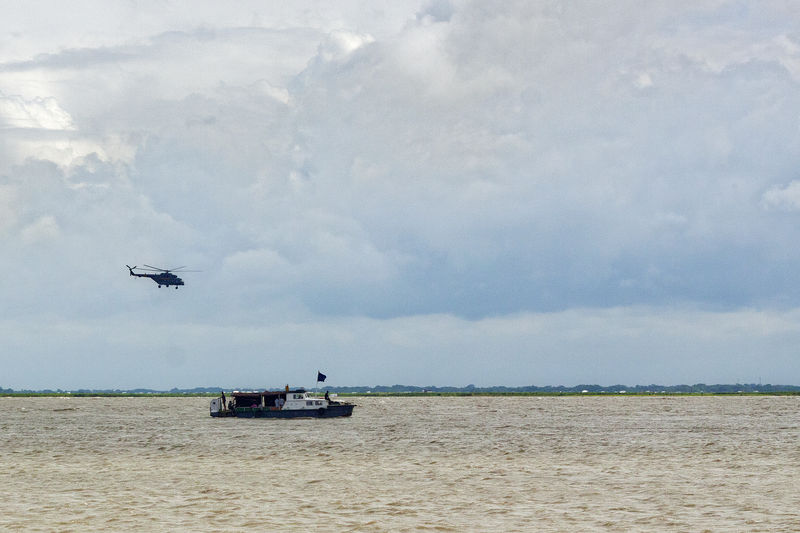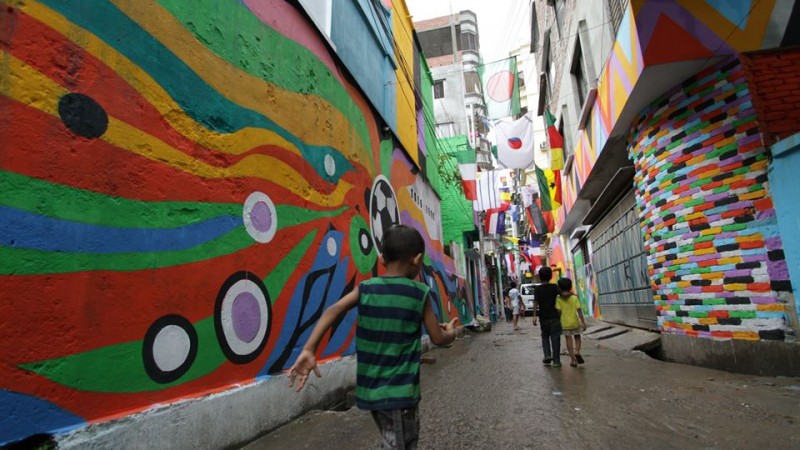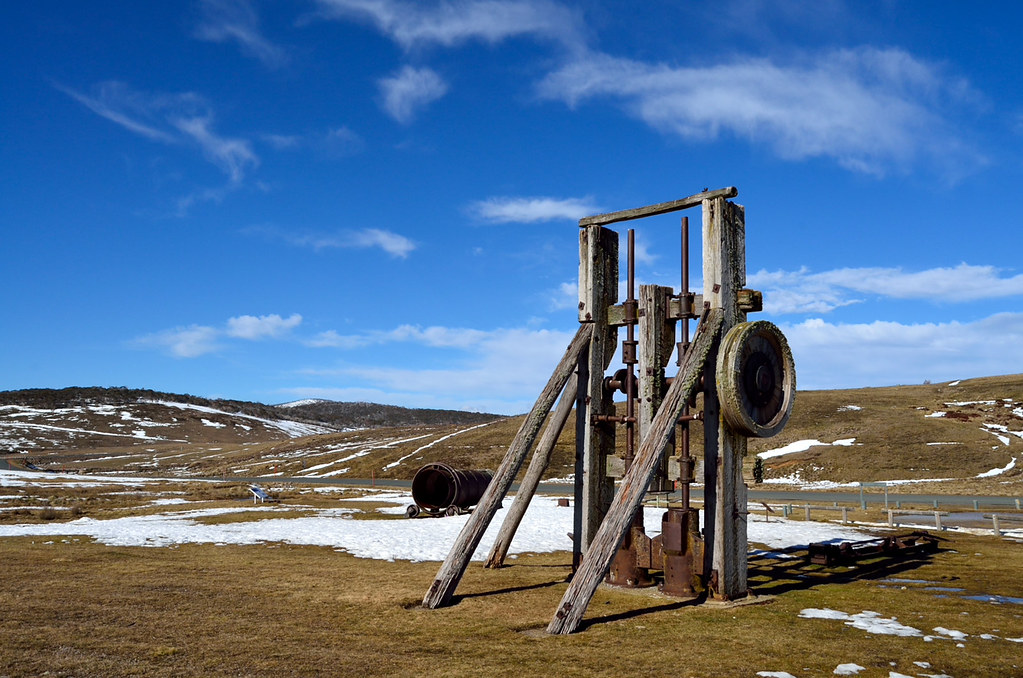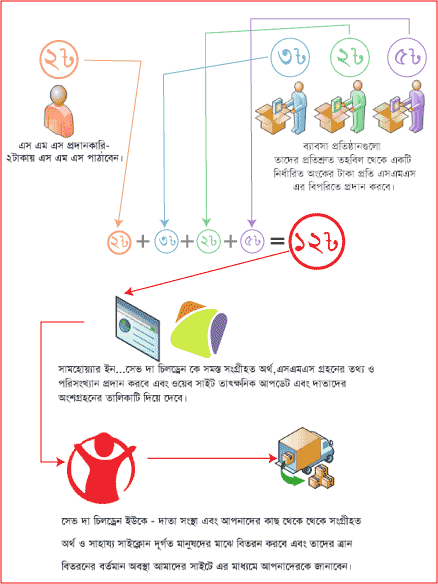Prominent writer Anisul Haque wrote this in
Prothom Alo questioning some Bangladeshi's attitude of negligence towards the cyclone Sidr victims. The piece is translated by Asif Saleh of
Drishtipat.
Need of the Hour
- Anisul HoqueI feel really mad at myself at times like these. In fact, I feel like spitting on myself. What sort of shenanigan is going on these days? I have just returned from sidr hit Patuakhali and Borguna's worst hit areas. I can already hear people requesting others to ask for help in a low voice. The background score is attempting to create pity for the victims. "Man needs to stand by another man", "Reach out with your helping hands", etc, etc. How poetic and beautifully rendered words being displayed in radio, television and newspapers. Many kind of humanitarian appeals have appeared. They are asking for help and coming up with various innovative ways to raise funds. Now there will be poetry recital for sidr victims, plays, art exhibitions for fund raising and what not. I feel like a phony and so does everyone around me. I myself is part of this middle class shenanigans.
I know those who are doing this (and I myself have done this many times) have noble and kind goals. But what will be the outcome of these funds? Today is Nov 24th, 2007. It has been eight days since Sidr struck. For the past eight days, hundreds and thousands of people are homeless. Having just lost their family members, these mourning and penniless people have spent sleepless nights under open sky. They don't have any work. They don't have a penny. Gone are their crops, the fishes from the pond, the cattle, the boat, the nets, their life savings - EVERYTHING !! The water of the tube well is rotten, the water of the pond is polluted by saline water from the sea. Even that water is carrying the dead bodies of livestocks. These people don't have a single thing. What have they eaten in the last eight days? What have they drank? How did the skeletal children of theirs pass such cold nights of winder? Have we ever thought about it?
We are now making relief committee? We are asking people to contribute? We are saying we will sing songs, do poetry and collect money?? When will this money be raised? When will they reach these people? Have you ever thought about that?
After directly talking to these people and having seen their sufferings, I have created a list for all of us -- the must dos for all of us based on the need of the hour.
What we, the average citizens, can do?We shouldn't waste collecting funds for people now. Whatever we have, we should scamper to the affected areas. We need to stop going to the same areas and giving relief to the same people. Rather, my advice for those whose hometown is in the coastal areas, is that they all should go home to their own villages. They should take food with them with rice and daal often being the best choice. The sufferers can barely lit the stove and cook rice for food. They don't consider any thing else to be proper food. If you take matches or candles, it may come of some use as well. Its good if you can take water. But since the communication system is not in functioning order, it may not be feasible to take a lot of water. It would be great, if deep tube well can be placed. This can be done after doing area wise research to find out whether the shallow tube wells can raise enough water.
Those who are not from those areas should also immediately rush there with relief. But please promise that you will reach the remotest areas where no one has gone before. Don't go to the same areas where others are going and distributing relief to the same people repeatedly. If you cannot take food with you, take cash. Give some cash on a per family basis. Even after lot of the roads are destroyed, the markets are still open and goods are being transported by boats. If people have money, the business people themselves will bring the food and other important goods on their own initiative.
It will be nice to give warm clothes as well. But the primary need of the hour is food and water. Then they need medicine. So form your own medical team and rush there with medicine and do treatment in health camps for 7 days. You will save many lives. People will build their houses themselves later, perhaps. If they get the cash, they will figure out their own priorities themselves. We think the next 10 days are EXTREMELY CRITICAL! If you can help these people to survive the next 10 days, they will be able to manage after that. By then the government's Vulnerable Group Feeding (VGF) program should start as well.
What the government should do?1. Identify the damages and assess the needs as fast as possible.
2. Start the VGF program really quick in the affected areas. The government of Shaikh Hasina did this during flood with help from the army and this was done very efficiently. This time as well, it is essential to have this work coordinated between local government, the local civilian administration and the army.
3. Put in deep tube well to get clean drinking water. If they can put in 500 of them in the entire coastal belt, the scarcity issue of drinking water will greatly be resolved.
4. Take emergency measures to restore the communication system. If needed, the engineering division of the army can be utilized for this purpose. It is very unfortunate that after so many days, all of the ferries in the area have not been restarted.
5. Restore various utility services like electricity and telephone.
6. Reach the areas which are unknown and where it is impossible for average citizens to reach
7. Send a medical team to every single affected union.
8. Create coordination cell in every district headquarter and upajila sadars. These cells will help (not supervise) with information those who will do relief work from the non government sector
What to do for the long term?
[the long term list has been truncated for focus and brevity ]
I criticized the fashionable do gooders and feeble attempts for relief fund raising in the beginning. But it is truly the time to stand up for humanity now. If you can, please rush to a remote char area TODAY. If you can not, after a few days, please by a family a cow or a boat or a fishing net. Even if one life is helped by that, wouldn't it make our life and existence more meaningful?
[First published in Prothom Alo on Nov 24th]






































 launched an innovative SMS based campaign “Jagoron” (which literally means ‘the awakening’) to enable those living in Bangladesh to do their bit in aid of Sidr victims. The campaign works as follows:
launched an innovative SMS based campaign “Jagoron” (which literally means ‘the awakening’) to enable those living in Bangladesh to do their bit in aid of Sidr victims. The campaign works as follows:





